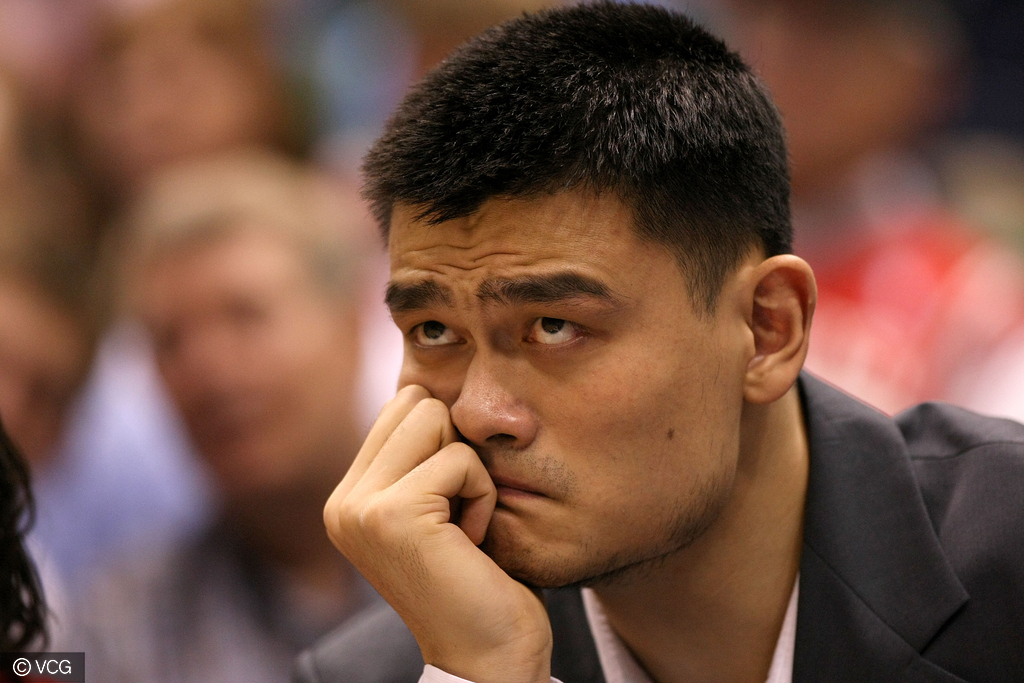Basketball reform needs Yao's magic hand

By Li Yang
'Chinese basketball has no so-called biggest problem, but problems everywhere," Yao Ming said after being elected chairman of the Chinese Basketball Association on Thursday. Although many are excited with Yao's election and hope that he will revitalize basketball in China, the former NBA star appeared calm at Thursday's ceremony.
It was not difficult for Yao to win the election after the basketball administration department of the General Administration of Sport allowed non-officials to lead the association. But can he turn his reform plan into reality? Of course, a lot will depend on whether the authorities and basketball fans give him enough time to turn things around.
Yao had been offering suggestions on basketball reform since retiring from active sport in 2011. His experience as a successful player and club manager of Shanghai Sharks added extra weight to his words.
He has proposed to prioritize market-oriented reform of the basketball league, on the lines of the United States' National Basketball Association, so as to give the clubs, instead of associations, the rights of managing, promoting and sponsoring matches.
He even played a leading role in establishing China Professional Basketball Club United Inc-a company founded in February last year by 18 of the 20 CBA clubs (excluding Shanxi and Zhejiang) to put pressure on the CBA to accept his reform plan and allow the company to manage the league matches.
Not surprisingly his proposal was rejected. But the CBA announced that it will initiate the reform as suggested by Yao. In November a company was set up to manage the league matches in which the CBA holds 30 percent share and the rest is held by the 20 clubs.
Although Yao said, "establishing this company is like wrapping our current system up in a company's shell", he had no option but to serve as a vice-chairman of the company.
After being elected CBA chairman, Yao said that he will sell all his shares in Shanghai Sharks before the start of the 2017-18 to avoid any conflict of interest.
It appears now that the authorities basically agree with Yao's reform plan, but still they want it to be carried out slowly. The formation of a new leadership group for the CBA with several leaders still being officials from GAS's basketball administration department also suggests that the authorities want the reform to be gradual.
Li Jinsheng, director of the department and vice-chairman of the CBA, said on Thursday the department will give up its 30 percent stake in the company and he will resign as its president in the future.
But why not now? Because the authorities still hold a wait-and-watch attitude toward Yao's reform plan, even though almost everyone agrees the reform should be market-oriented. If Yao fails, as many reformers before him have, the authorities will have room to retreat. In other words, how much power Yao wields will depend on how well his reform plan goes.
The terrible performance of the Chinese national basketball team in the last two Olympic Games forced the authorities to break the deadlock in basketball reform. The 2019 FIBA Basketball World Cup in China and the Tokyo 2020 Olympics will be the two toughest tests for the new CBA disposition under Yao. This means Yao has three years to prove his ability as a reformer.
Yao may not turn out to be the savior of Chinese basketball, but he could still be a pioneer in sports reform. By using his international experience and introducing overseas talent, he can guide Chinese basketball in the right direction following in the footsteps of sincere reformers who preceded him in the CBA. And given that he is a symbol of sports for many, one hopes he succeeds.
The author is a writer with China Daily.






